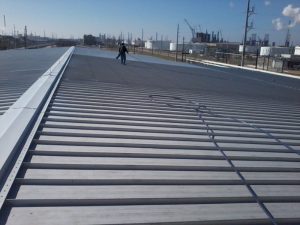Commercial builders play a significant role in shaping the landscape of Australia’s built environment. From constructing office buildings and shopping centers to industrial facilities and educational institutions, these professionals are instrumental in bringing architectural visions to life.
The Role of Commercial Builders:
Commercial Builders Lismore plays a crucial role in the construction industry, specializing in projects that are non-residential in nature. Their roles encompass various aspects of the construction process, including planning, design, procurement, and construction management. Here are some key roles of commercial builders:
- Project Planning: Commercial builders work closely with clients to understand their needs and objectives for a project. They assist in developing project plans, timelines, and budgets.
- Design Coordination: They collaborate with architects, engineers, and other design professionals to develop construction plans and specifications that meet the client’s requirements and comply with building codes and regulations.
- Procurement: Commercial builders are responsible for procuring materials, equipment, and subcontractor services necessary for construction. They negotiate contracts with suppliers and subcontractors to ensure competitive pricing and timely delivery of materials and services.
- Construction Management: Commercial builders oversee all aspects of the construction process, including scheduling, budgeting, quality control, and safety management.
- Compliance and Regulations: They ensure that construction projects comply with local building codes, zoning regulations, and other legal requirements. This may involve obtaining permits, conducting inspections, and addressing any regulatory issues that arise during the construction process.
- Risk Management: Commercial builders identify and mitigate potential risks associated with construction projects, such as delays, cost overruns, and safety hazards. They implement strategies to minimize risks and ensure the successful completion of projects.
- Client Communication: They maintain regular communication with clients to keep them informed about the progress of the project, address any concerns or issues that arise, and ensure that the project meets their expectations.
- Post-Construction Services: Commercial builders may provide additional services after construction is complete, such as maintenance, repairs, and renovations, to ensure the long-term functionality and value of the property.
Key Responsibilities of Commercial Builders
Commercial builders play a crucial role in the construction industry, handling various responsibilities throughout the construction process. Here are some of the key responsibilities of commercial builders:
- Project Planning and Management: Commercial builders are responsible for planning and managing all aspects of a construction project. This includes developing project timelines, budgets, and schedules, as well as coordinating with architects, engineers, subcontractors, and other stakeholders.
- Site Preparation: Before construction can begin, commercial builders oversee site preparation activities such as clearing land, grading, excavation, and utility installation.
- Obtaining Permits and Approvals: Commercial builders are responsible for obtaining all necessary permits and approvals from local authorities and regulatory agencies before construction can commence.
- Construction Oversight: Commercial builders oversee all construction activities, ensuring that work is completed according to design specifications, building codes, and quality standards. They also monitor progress, address any issues or delays, and make adjustments as needed to keep the project on track.
- Procurement and Material Management: Commercial builders are responsible for procuring materials, equipment, and supplies needed for the construction project. This includes sourcing vendors, negotiating contracts, and managing inventory to ensure that materials are available when needed.
- Safety and Compliance: Commercial builders are responsible for ensuring a safe working environment for all workers on the construction site. This includes implementing safety protocols, providing training, and ensuring compliance with health and safety regulations.
- Quality Control: Commercial builders are responsible for maintaining quality control throughout the construction process. This involves conducting inspections, testing materials, and ensuring that work meets the required standards and specifications.
- Budget Management: Commercial builders are responsible for managing the project budget and controlling costs. This includes tracking expenses, managing subcontractor payments, and identifying potential cost-saving opportunities.
- Project Completion and Handover: Once construction is complete, commercial builders oversee the final inspections, ensure that any outstanding issues are addressed, and coordinate the handover of the completed project to the client.
Different Challenges Faced by Commercial Builders:
Commercial builders face a variety of challenges in their line of work, many of which stem from the complexity of construction projects and the dynamic nature of the industry. Here are some common challenges faced by commercial builders:
- Labor Shortages: Finding skilled labor, including carpenters, electricians, plumbers, and other tradespeople, can be difficult, especially during periods of high demand in the construction industry. Labor shortages can lead to delays and increased labor costs.
- Supply Chain Disruptions: Commercial builders rely on a complex network of suppliers and subcontractors to provide materials, equipment, and services. Disruptions in the supply chain, such as shortages, delays, or price fluctuations, can impact project timelines and budgets.
- Cost Overruns: Commercial construction projects often involve large budgets and tight profit margins. Unexpected expenses, such as material price increases, design changes, or construction delays, can quickly lead to cost overruns if not properly managed.
- Schedule Delays: Delays in obtaining permits, adverse weather conditions, labor shortages, supply chain disruptions, and unexpected site conditions can all contribute to schedule delays in construction projects. These delays can impact project timelines and increase costs.
- Design Changes: Changes to project designs or specifications, whether initiated by clients, architects, or regulatory agencies, can disrupt construction workflows and lead to additional costs and delays.
- Risk Management: Commercial builders face various risks, including safety hazards, construction defects, contractual disputes, and financial risks. Managing these risks effectively requires proactive planning, communication, and risk mitigation strategies.
- Client Expectations: Meeting and managing client expectations can be challenging, particularly when clients have unrealistic expectations regarding project timelines, budgets, or design specifications. Effective communication and clear project management are essential for managing client expectations.
Commercial builders are essential players in the construction industry, responsible for bringing to life the diverse array of non-residential buildings that define Australia’s urban landscape. Through their expertise, dedication, and innovation, commercial builders contribute to the economic growth, social development, and environmental sustainability of the country. By understanding the role, challenges, and contributions of commercial builders, we gain a deeper appreciation for their vital work in shaping the built environment for future generations.



